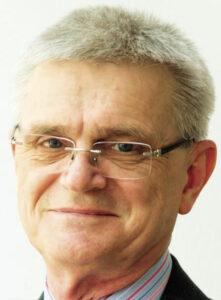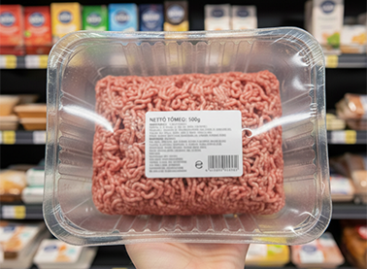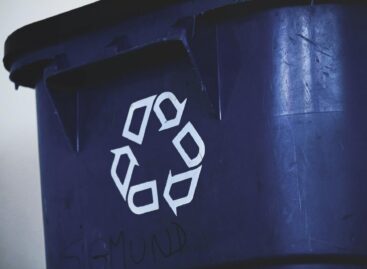Miklós Nagy: “The EPR system is moving too fast”
Our magazine interviewed Miklós Nagy, technical secretary of the National Association of Packaging and Materials Handling (CSAOSZ).

This article is available for reading in Trade magazin 2024/11
![]() – How is the EPR system working?
– How is the EPR system working?

Miklós Nagy
technical secretary
National Association of Packaging and Materials Handling
– With the fast-track introduction of the extended producer responsibility (EPR) scheme in 2023, it is perhaps too early to comment on its impact on the effectiveness of waste management. Legislators should have given much more time to launch a nationwide scheme like this, which affects the vast majority of domestic operators.
![]() – What impact does the EPR scheme have on domestic manufacturers and distributors?
– What impact does the EPR scheme have on domestic manufacturers and distributors?
– The financial burden for business organisations has got 4-6 times bigger on average if compared to the previous product fee payments, but it is equally painful that besides the introduction of the EPR there is still an obligation to declare environmental product fees.
![]() – How can companies help to create a circular economy?
– How can companies help to create a circular economy?
– Companies are expected to comply with the full recyclability of packaging already now, which isn’t expected to be stipulated by the PPWR (EU Packaging Regulation) until 2030. Furthermore, plastic packaging is expected to contain recycled material. Currently besides PET, for other types of plastic (e.g. PE, PP) there is no authorised recovery technology that is suitable for food contact and for making PCR-grade secondary raw materials.
![]() – What is your vision for the packaging sector in the light of the EPR scheme?
– What is your vision for the packaging sector in the light of the EPR scheme?
– The packaging industry will undergo a major transformation in the coming years, but this won’t only be because of the EPR, but much more due to the new PPWR requirements. In connection with the PPWR, the task will be very complex: as a first step everyone will be obliged to evaluate their packaging from a utility perspective and then consider the necessary changes on that basis.
![]() – How are sustainability expectations changing as consumer awareness is on the rise?
– How are sustainability expectations changing as consumer awareness is on the rise?
– Awareness raising is a very important task. Unfortunately, in the last 10-12 years basically there was no such thing. It seems to me that consumer awareness is directly linked to our “pockets”.

A csomagolóipar jelentős átalakuláson fog átmenni az elkövetkező években, nem is annyira az EPR, hanem sokkal inkább a PPWR új előírásainak köszönhetően
![]() – How successful is the realisation of circular economy goals in Hungary?
– How successful is the realisation of circular economy goals in Hungary?
– We are still in the early stages of achieving the circular economy targets. It is clear from the legislation that the government hasn’t left this to economic actors, pushing all the tasks to the concessionaire side.
![]() – What are some of the key modifications that still need to be made in domestic legislation?
– What are some of the key modifications that still need to be made in domestic legislation?
– CSAOSZ, in cooperation with its packaging industry partners, submitted a 25-page amendment proposal to the ministry in the summer. We say that the double administration (EPR + environmental product fee) should be eliminated where possible and small businesses should benefit from simplified registration, declaration and payment conditions.
![]() – How do you see this year’s HUNGAROPACK Hungarian Packaging Competition? What innovations and creative solutions stood out from this year’s entries?
– How do you see this year’s HUNGAROPACK Hungarian Packaging Competition? What innovations and creative solutions stood out from this year’s entries?
– We received 55 entries for this year’s competition – all of them real innovations. The jury awarded the HUNGAROPACK prize to a small company for its technology to refill spray products, the first of its kind in the world! //
Related news
Oversized packaging not only deceives the customer, but also violates the principles of the circular economy
🎧 Hallgasd a cikket: Lejátszás Szünet Folytatás Leállítás Nyelv: Auto…
Read more >2026: stricter EU rules and digital waste tracking
🎧 Hallgasd a cikket: Lejátszás Szünet Folytatás Leállítás Nyelv: Auto…
Read more >Related news
Historic price reduction at ALDI
🎧 Hallgasd a cikket: Lejátszás Szünet Folytatás Leállítás Nyelv: Auto…
Read more >A stable compass in the Hungarian FMCG sector for 20 years
🎧 Hallgasd a cikket: Lejátszás Szünet Folytatás Leállítás Nyelv: Auto…
Read more >








